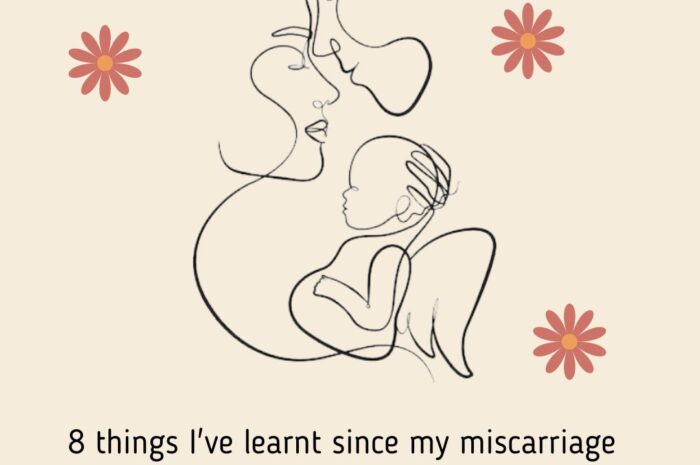
A termination and six miscarriages in five years; Leila Martyn calls for change
London, England, October 03 2022 – A government petition has launched highlighting the imperative that Polycystic Ovary Syndrome (PCOS) and Endometriosis information is included as part of the national curriculum for children in secondary school when learning about reproductive organs. Despite The Women’s Health Strategy for England report 20221 highlighting the importance of PCOS and Endometriosis education, the government has still not implemented either subject into the curriculum.
This campaign, as part of PCOS awareness month, also aims to break the stigma and normalise talking about reproductive health from an early age.
In the UK, one in ten girls, women and people who ovulate are living with PCOS and Endometriosis meaning that most people will know at least one person living with either or both.2,3 It is estimated that up to 70% do not know that they have PCOS and there is currently an eight-year diagnosis time for Endometriosis.2,4
The campaign is being led by Leila Martyn, founder of MyOva, who endured PCOS for four years before receiving a diagnosis at 19 years old. Unfortunately, at the time, she was misinformed about the condition by her GP, including around her fertility. This later led to an unexpected and unwanted pregnancy ending in a termination.
“This traumatic experience left me with huge amounts of shame and anguish. Looking back, I now realise that I was hugely let down by the system and the massive gap in general awareness and education around this common women’s health condition. I am determined to ensure that PCOS and Endometriosis is positively and openly spoken about early on in life so that no one has the same experience as me.”
Leila has since set up a PCOS support network online and works alongside registered dietician Jodie Relf to campaign for an increase in knowledge and awareness from a young age upwards.
In PCOS, earlierdiagnoses can prevent other secondary conditions like type 2 diabetes, endometrial cancer, pregnancy complications including gestational diabetes, preeclampsia and premature delivery, cardiovascular disease (CVD), sleep apnoea and depression and mental health issues caused by symptoms.4 It is estimated PCOS-related diabetes alone costs the NHS £237 million.6 More rapid diagnosis is required to ensure better management of symptoms, a speed improvement in detection of secondary conditions to improve quality of life as well as a reduction of the huge cost to the UK tax payer.
The petition is now open and will run for six months. If it achieves 100,000 signatures, the topic will be considered for debate in parliament.
The petition can be found here: Include PCOS & Endometriosis education in the national secondary curriculum – Petitions (parliament.uk)
Media contact details and for interviews: helen@helenkhanpr.com ; 07825 683 081
References
- Department of Health and Social Care. Women’s Health Strategy for England – GOV.UK (www.gov.uk) accessed 05.09.22
- Verity. http://www.verity-pcos.org.uk accessed 24.08.22
- National Institute for Health and Care Excellence. https://cks.nice.org.uk/topics/endometriosis/background-information/prevalence/ accessed 24.08.22
- Endometriosis UK. https://www.endometriosis-uk.org/it-takes-average-75-years-get-diagnosis-endometriosis-it-shouldnt
- Royal College of Gynecology. https://www.rcog.org.uk/for-the-public/browse-all-patient-information-leaflets/polycystic-ovary-syndrome-pcos-what-it-means-for-your-long-term-health-patient-information-leaflet/ accessed 24.08.22
- Tao Ding, Paul J Hardiman, Irene Petersen, Gianluca Baio. Human Reproduction: Volume 33, Issue 7, July 2018, Pages 1299–1306 https://academic.oup.com/humrep/article/33/7/1299/4976976 accessed 24.08.22
PCOS
Polycystic ovary syndrome (PCOS) is an endocrine disorder characterised by ovulatory dysfunction, leading to irregular or absent periods, metabolic changes (e.g. obesity and insulin resistance) and hyperandrogenism (e.g. hirsutism and acne). Around 40-60% of people with PCOS live with obesity, it is also a risk factor for metabolic syndrome, cardiovascular disease, and type 2 diabetes.
PCOS has a prevalence of one in ten women of reproductive age.
Symptoms include:
- Irregular periods or no periods at all
- Difficulty getting pregnant (because of irregular ovulation or failure to ovulate)
- Excessive hair growth (hirsutism) – usually on the face, chest, back or buttocks
- Weight gain
- Thinning hair and hair loss from the head
- Oily skin or acne
- Fatigue
- Anxiety
- Depression
- Low libido
For more information: https://www.myovacare.com/pages/about-us
Endometriosis
Endometriosisis a condition where tissue similar to the lining of the womb starts to grow in other places, such as the ovaries or fallopian tubes.
Symptoms can vary in severity with some women being more badly affected than others. Endometriosis has a prevalence one in ten women of reproductive age.
Symptoms include:
- Pain in lower back or tummy
- Painful periods that mean you can’t do normal activities
- Pain during or after sex
- Pain when going to the toilet
- Feeling sick, constipated, diarrhoea
- Difficulty getting pregnant
- Very heavy periods
For more information: https://www.nhs.uk/conditions/endometriosis/




